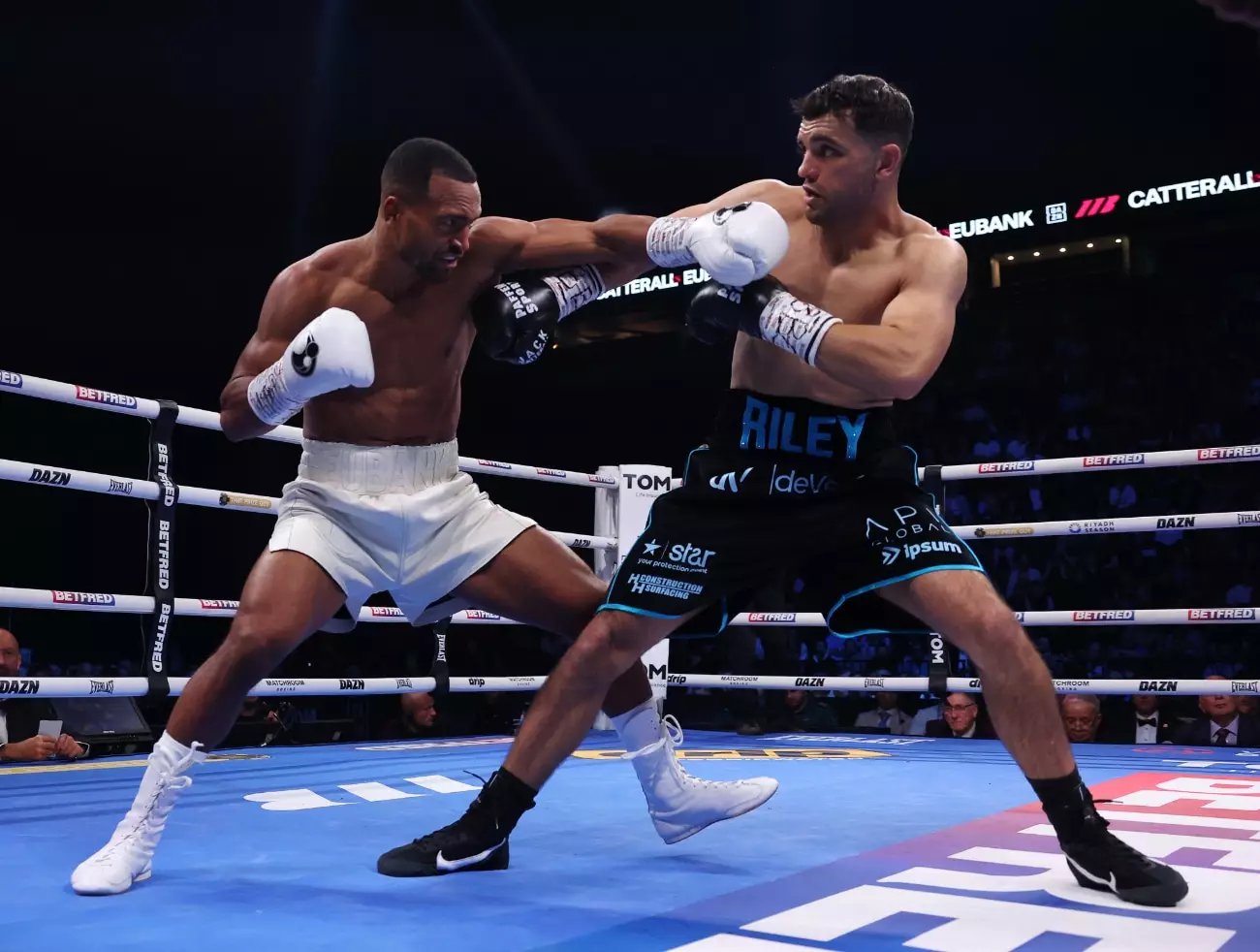Jack Catterall’s recent contest against Harlem Eubank was neither a showcase of dominance nor a testament to boxing brilliance. Instead, it revealed the underlying struggles of a fighter attempting to find his edge after setbacks and the harsh realities of the sport’s unpredictable nature. Catterall, once known for his resilience and tactical intelligence, appeared cautious, perhaps overly tentative, as the fight unfolded. His decision to retreat and throw fewer meaningful punches in the face of Eubank’s aggressive, clashing style robbed the audience of compelling action and betrayed confidence in his power. The fight’s premature end—stopped due to a clash of heads causing a severe facial cut—left many feeling it was an incomplete story rather than a definitive victory.
The fight was a testament to how external factors—such as cuts, referee decisions, and accidental head clashes—can obscure a boxer’s true capabilities. Despite Catterall’s verbal insistence that he was “breaking Eubank down,” the reality seemed far from definitive. His punches lacked the venom necessary to press Eubank’s natural power advantage, leaving him vulnerable and largely defensive. The overall tone of the bout was dull, reminiscent of bouts where the strategic approach devolves into wrestling and clinching, ultimately stifling entertainment and providing a frustrating spectacle for fans.
Future Pathways: Ambitions vs. Realities
Promoter Eddie Hearn’s plans for Catterall are clear: the ultimate goal is a shot at a world title, likely the IBF belt vacated by Jaron Ennis. This strategic move suggests a confidence that Catterall, despite recent performance doubts, remains a viable contender—albeit one who must navigate a tricky landscape of lesser-ranked fighters before getting a chance at the big stage. The selected opponents—Lewis Crocker and Paddy Donovan—are not household names but are considered stepping stones. The assumption is that Catterall, with his skills and experience, can dominate these fighters and position himself as a legitimate title challenger.
However, this plan presumes that Catterall’s current form and approach will suffice to secure a meaningful opportunity. The lack of a compelling, decisive performance in the Eubank fight casts a shadow of doubt over his readiness. Critics might argue that transitioning to title contention should involve clearer dominance, not mere survival or cautious fighting. The path outlined is fraught with potential pitfalls—fights against fighters of questionable caliber often lead to unexpected upsets or stumbles that could set back his ambitions.
Reevaluating the Strategy: Power, Confidence, and the Need for Boldness
One recurring theme in Catterall’s career is a hesitance to display true knockout power, especially at welterweight. The recent performance underscored a crucial flaw: the lack of offensive firepower to unsettle opponents and assert dominance. If Catterall aims to break into the elite echelon, a fundamental rethinking of his fighting style is necessary. Instead of relying purely on strategy and endurance, he needs to develop the confidence to unleash his power and force opponents onto the back foot.
Furthermore, the fight’s narrative exposes his mental fragility—how setbacks can influence performance. The frustration expressed by Catterall after the fight illustrates a desire to prove doubters wrong and reestablish his reputation. However, voice alone isn’t enough; he must back these words with aggressive, impactful performances that demonstrate he is not just a tactician but also a force to be reckoned with.
The Window of Opportunity and the Need for Courage
The blueprint for a successful resurgence lies in embracing the challenge with courage and conviction. Catterall should not view lower-tier opponents as mere stepping stones but as opportunities to showcase his evolving skill set. His next fights should be a statement—highlighting his power, resilience, and ability to dominate. Only then can he convincingly position himself for that coveted world title shot.
Eddie Hearn’s keen eye for talent suggests that Catterall’s management team recognizes the importance of timing. Waiting too long or not taking bold risks could see his window of opportunity closing. For Catterall, the stakes are high, but so are the rewards. He has to believe in his potential enough to fight with the kind of ferocity that fans and critics alike respect.
In essence, Catterall’s current trajectory is a crossroads—stagnation or resurgence. The fighter’s true test lies not just in securing another win but in transforming the narrative of his career into one marked by dominance and undeniable excellence. The fight against Eubank may have been a setback in fight night, but it could also serve as a catalyst for real change—if he chooses to embrace the challenge with the courage necessary to fulfill his true potential.

